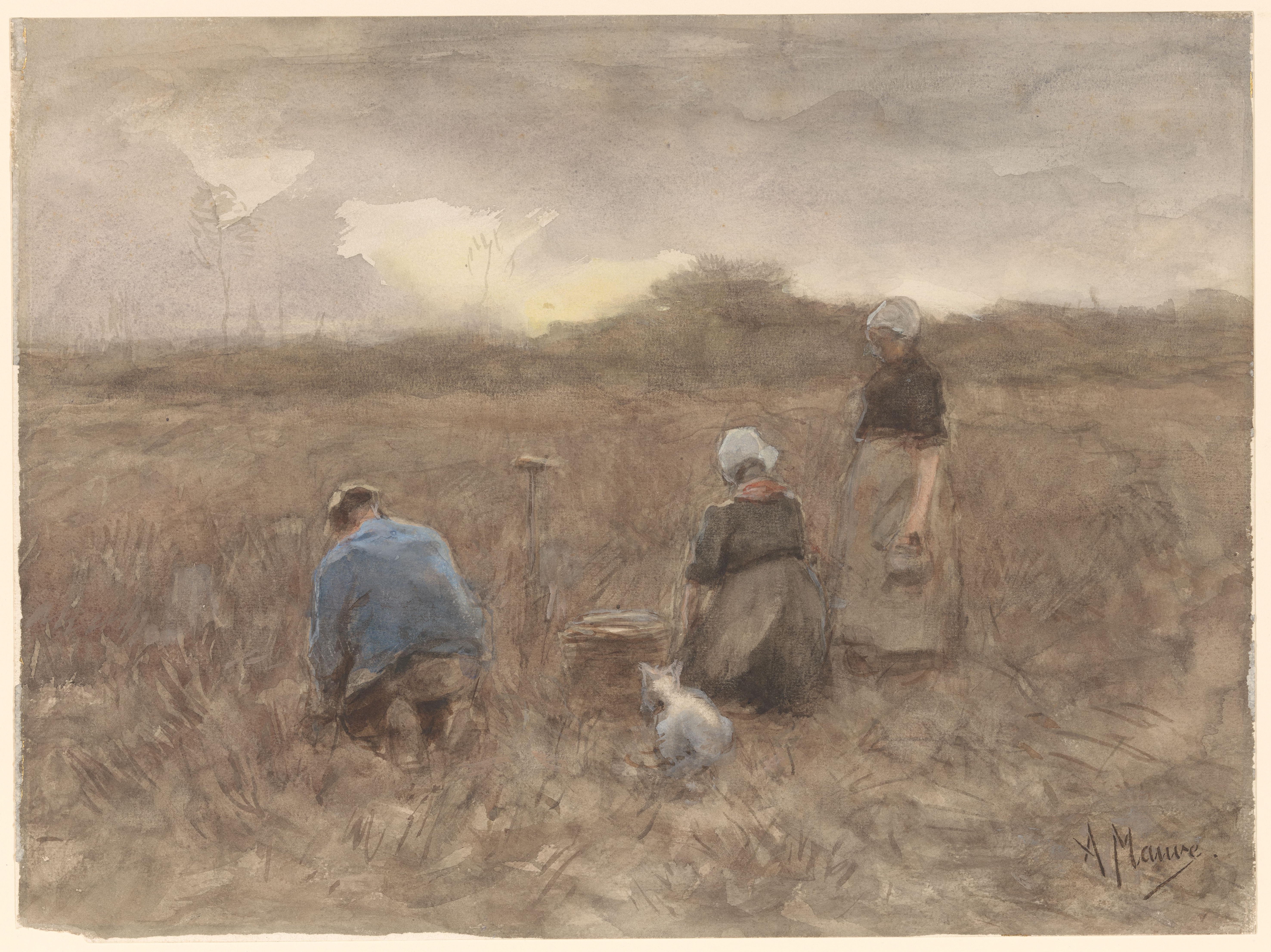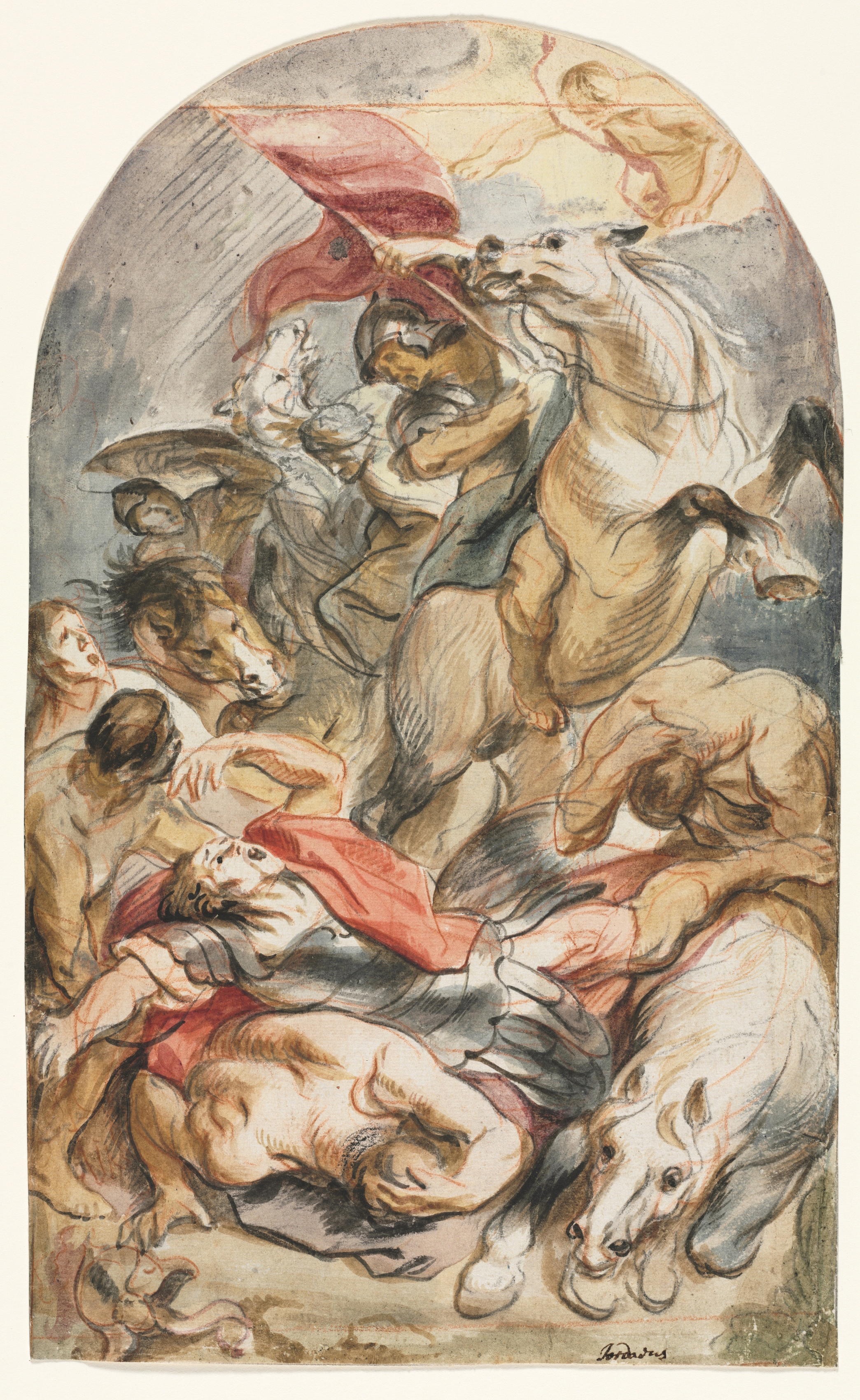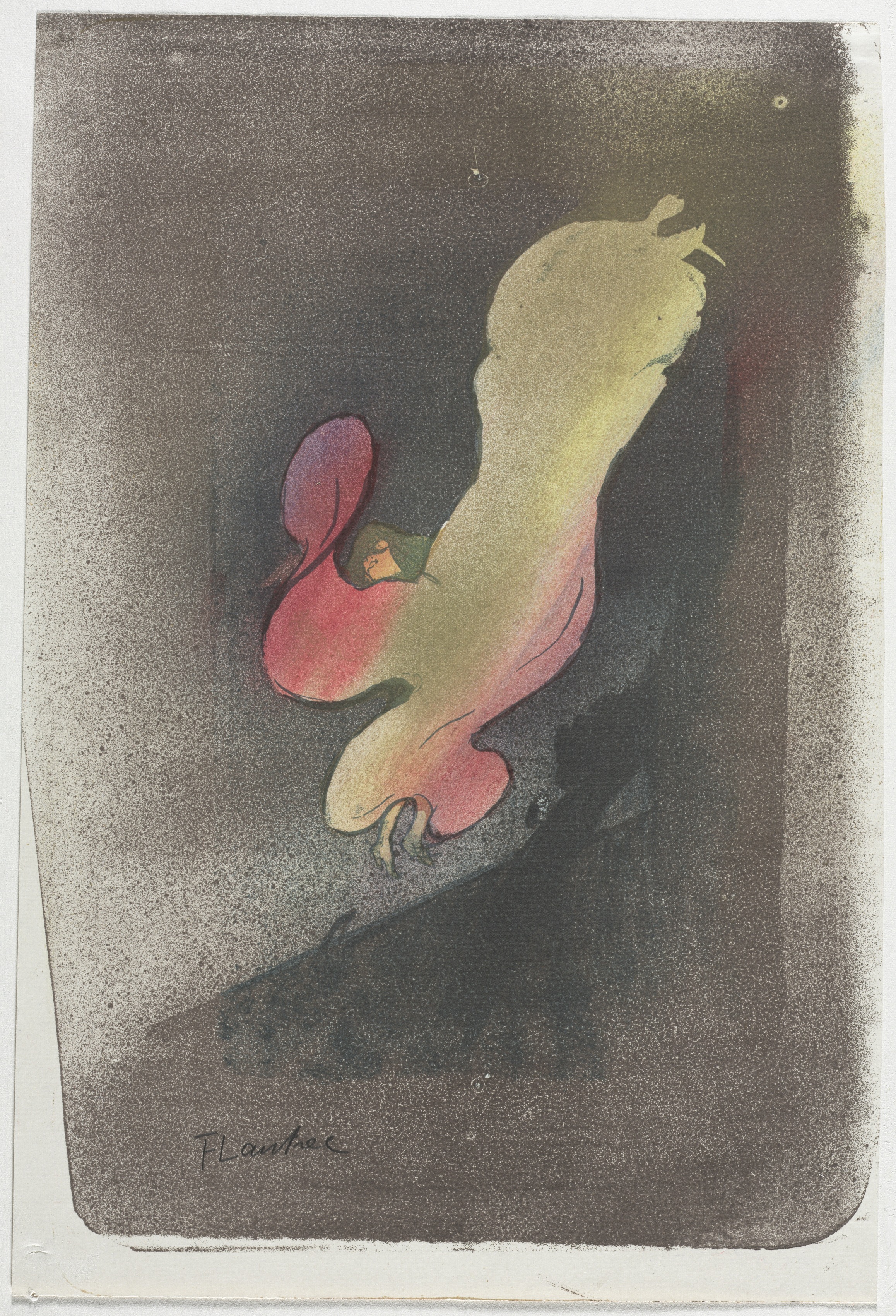MyWives

Jean Francois Janinet:
The Three Graces (Not Dated, circa 1770-1814)
"If life's not improving then it must be intruding …"
My Wives
"My first wife was an angel in disguise,
She taught me how to cry
and I taught her how to fly,
she bore two children.
We moved to Pennsylvania where we tried
to live the compromise familiar to all we lives.
We drank our fill, then …
"Life intruded on our plans, the future took our hands,
Pipes

Luc-Olivier Merson:
Head of a Boy Singing [Study for Music] (c. 1898)
"I see much whispering to myself through the near future."
My songs might well be eternal, but only conceptually. Actual eternity requires more resources than might seem obvious. That ditty you heard on the radio probably cost thousands of dollars to produce. The simpler the song, the more its production likely cost, with studio time alone costing beaucoup bucks per hour, not to mention engineers, musicians, and backup singers. My songs, as I've explained before, are more like freeze-dried preserved. They need to be reconstituted each time. This requires not only the words, melody, and chords, but also a fresh performance of those, using my voice and accompanying myself on my guitar. Recovering these tunes touches every aspect of every song. I've struggled just to recover the words for some. The melodies and chords were never transcribed into musical notation, which I never mastered and couldn't read in realtime, anyway, so those need recovering from my ever-faulty memory. It was long my dream to record in a real studio, though I only ever managed that feat once. I recorded five songs in the hour I'd reserved, if you don't count the extra time the studio's owner gave without charging me, so I could finish what I'd intended, because he liked what I was doing. Even those need recovering if I ever intend to actually perform them.
So, when I say I'm recovering a set of songs, I mean that I'm actually recreating those performances, or, more accurately, creating them anew again.
Fingerlings

Anton Mauve:
Aardappelrooiers [Potato Harvesters]
(1848 - 1888)
"I pursue my best with the least promising resources …"
After a few years of relative inactivity, my fingers seem almost as agile as Fingerling potatoes. They've lost their limberness. They feel stiff and inattentive when attempting to play anything the least bit intricate. They transform my guitar's fretboard into an authentically fretful place. I attempt little and achieve worse, cursing under my breath. I face a long recovery, a bare uphill track featuring few useful landmarks. I some days doubt that I will ever recover my former mindlessness, for proper guitar playing requires little if any thought. It's incarnate muscle memory in action, not in any way thoughtful or strategic. Once mastered, it just happens, freeing up consciousness to remember lyrics or control voice and volume. The guitar should properly accompany, not feature, and in order to properly disappear into the background, it must be transcended. No struggling to remember chord order or, heaven forbid, proper fingering. That must follow as a matter of course, without thought or fuss.
Now, it remains mostly thought and fuss, of course, which reliably produces the absolute opposite of reinforcement to practice, which will provide the only viable escape route back to even the appearance of competence.
SpecialCrazy

Vincent van Gogh:
Madame Roulin Rocking the Cradle
[La berceuse] (1889)
" … this song cemented our sanity."
A Special Kind Of Crazy
"It takes a special sort of Fool to write a song for you.
That Special Kind Of Crazy can't help but just shine through,
Other lives and other places
You with yours and my displacements,
We'll integrate or simply leave behind,
'cause I'm crazy of that very special kind."
And so I started what promised to be a really terrific tune.
Underpants

Underpants of Hendrik Casimir I: Anonymous
(1630 - 1640)
"Give me superficiality or give me certain death …"
Those who've followed my FaceBook benediction postings after my Friday PureSchmaltz Zoom Chats already know that I favor what're labeled "Novelty" tunes. I take my music seriously, as the pieces I've already introduced doubtless make clear, but I'm never more delighted than when The Muse slips some smart-assed something into the mix. Like many other songwriters, I've never really been in charge of which songs emerge. I've proven myself capable of following inspirations, but never really facile at creating them. Songs more visit me than I create them. They lead, I dutifully follow, and the responsibility does, indeed, feel like a duty to me. Like anyone, I feel enjoined to make my particular sort of noise in this world. Otherwise, why was I even born?
Amid all my more serious works, my self-described Top Fifty Truly Terrible Traveling Tunes stand eternal.
InvisibleHusband

William Henry Millais: Steps in a Garden (1860)
"This wholly unlikely story is absolutely true."
The Invisible Husband
"It’s late. I’m going to sleep.
You’re still awake in an airplane seat.
I’m here, holding fort,
the cats are tended and the house is dark.
I’ll see you late Friday night,
too late for supper, I’ll keep the bed warm,
let yourself in if I couldn’t keep my eyes open."
If any of my songs have proven emblematic of an era, this one certainly managed to became that.
Magick

Corita Kent (Sister Mary Corita):
m is for magick (1968)
"[Magick] might materially misrepresent its eventual impact."
The wheat and the chessboard problem dates from at least the thirteenth century. In it, a king foolishly agrees to pay a mercenary in grain, a single kernel for the first day's effort, two kernels for the second, doubling the amount each successive day until all sixty-four squares on a chessboard are covered. The amount of grain accumulated after the first thirty-two days of effort seems huge, something on the order of 279 tons, but the thirty-third square calls for twice that amount. By the sixty-fourth square, only more than 1,600 times the world's annual grain production will meet the requirement.
I recall this story to describe how cancer treatment works.
FoolHead

Sebald Beham: The Fool and the Foolish Woman
(circa 1531-50)
"What wiser course could any half-wit devise?"
My mother would have said that I was singing my FoolHead off, but I was actually singing it on. Plugged into my studio headphones and finally satisfied with the filtering, I was suspended in an other world, singing while playing my guitar. Once tuned up and with my eyes closed, I had dulled all extraneous senses so that I could focus upon the few of them important to my mission. I was, in the vernacular, practicing, but I was more like focusing. The focusing's much harder, and a necessary precedent if practicing's to satisfy its purpose. The biggest challenge involves overcoming the distractions, and plugging into my sensory depravation system definitely helps. It seems that I can accomplish nothing as long as my full range of senses remain active. I must dismiss some feelings to make either sense or progress. I must put on my FoolHead, not remove it.
Performing seems a necessarily mindless activity.
TheVoices

Jacob Jordaens:
The Conversion of Saul with Horseman and Banner
(c. 1645–47)
"Better if he focuses exclusively upon making a joyful noise."
Performer Leo Kottke famously described his baritone singing voice as sounding like "Geese farts on a muggy day." I've long agreed with him, yet his singing voice seems perfectly appropriate, the perfect accompaniment to his masterful guitar playing. He plays his guitar so skillfully that any accompanying voice couldn't help but mesh well. A long line of less than perfect voices have passed in and out of notoriety in my short lifetime, so many that I marvel at how few really wonderful voices I've ever heard. Clearly, the quality of a voice and the quality of any given performance remain two very separate experiences, with the twain only rarely converging. The quirky seems to have little problem attracting an adequate crowd, and often, much more than a merely adequate one.
An unheard voice, the voice within, always accompanies the one projected over the accompanying music.
BornToSee

Frederic Edwin Church: Twilight in the Wilderness
(1860)
"Another dichotomy bites some dust."
Many of my song lyrics describe apparent contradictions, where opposites might temporarily take the same side. I was always attracted to seeming paradoxes, relations that make no rational sense, but which could be resolved with a little perspective shifting. I have often been fooled when some opposite turned into something much more similar than I'd earlier expected. I might have been making war on dichotomies, trying to demonstrate just how simplistic and self-destructive classifications can become. Many of my lyrics register surprise at discovering another nature lurking behind the obvious one. I believe that this phenomenon represents real learning. When all the innocent and ignorant others disappear into similar forms, enlightenment will have occurred. Until then, good and evil continuously battle to nobody's obvious benefit.
BornToSee The Light
OneMysteriousDream

Jean Morin, After Jacques Fouquières:
Landscape with a Wheatfield (17th century)
" … it matured to say precisely what needed saying …"
One Mysterious Dream
"I will take to the morning on the first day of my life
and wander through the sparkling dew and sunshine,
and let her icy tingle wipe the sleep out of my soul,
for it seems to me I surely have been dreaming all this time.
But I almost half remember this One Mysterious Dream
that came upon me just before I rose."
Metaphysics might be the one consistent sub-theme running through all my lyrics.
AFriendOfMine

Unknown artist: "Pistol-Packing Pirate" still bank
(20th century)
"We're moving targets with static language."
A Friend Of Mine
"Talk about your side streets,
go on and talk about your country roads.
Talk about your alleyways, Daddy
where you're not supposed to go alone.
Sing me a song of the city at dawn
where the neon fades in shame,
and tell me all about your doorways, Daddy,
when you're sleeping' in the rain."
And so began the story of the end of AFriendOfMine.
AWOL

Albert Emmanuel Bertrand: The Absinthe Drinker
(c. 1890)
"Absence made this heart more insistent."
The Muse insisted that I take that trip, which made me absent for those treatments. The treatments had become routine. The radiation, a mere few seconds. The aftermath, difficult to assess. The oncologists both promised worsening experience over the next months. Still, each day passed without any dramatic changes: a definite but subtle tiredness, a growing willingness to sleep in each morning and to retire ever earlier after supper, but nothing dramatic. We, the patient and her Emotional Support Animal (me), might have grown complacent, continuing a long streak of decent good fortune into a surprisingly welcoming future.
The Muse's cancer treatment occurs as an experiment.
Estranging

Maurice Denis:
But It is the Heart That Beats Too Quickly,
plate twelve from Love (1898)
published 1899 by Ambroise Vollard
"No way could we ever possibly be tempted to say …"
Just To Break A Heart
Half truth, and half promise
like we knew our future from the start.
I told you the truth when I said I loved you,
it came right from my heart.
Then we moved through our lives with confident strides,
just as if we knew love, just as if we controlled our hearts.
Let's just say as we tumble away
that we played Just To Break A Heart.
The yin/yang symbol illustrates how this world might seem equally divided between light and dark, but that the dark also contains a spot of light and the light, a spot of dark.
Slip over here for more ...Wandering

Albert-Charles Lebourg: A Miller's Carriage (c. 1895)
The horse-drawn carriage parked at the curb beside the ice cream parlor where families sat at outside tables and watched while other families boarded and unboarded the carriage. The carriage with its driver and passengers would leave, horse walking, before making a left turn a block down the street then continuing on its excursion. A few minutes later would find that same horse and carriage moving regally up the next street over, passengers watching unremarkable storefronts pass before them. People love to take rides. That carriage would take its passengers on a short journey to nowhere, past places they could more conveniently view while walking. What compelled their adventures to no place? What drove their excursions?
The horse threw a shoe as it began a later trip.
Elbowing

Fons Van der Velde:
Koppen in een menigte [Heads in a crowd]
(1880 - 1936)
" … no business expecting any different."
It seems a wonder bordering on a miracle when anything gets accomplished, for setting a definite priority might have always been the surest way to create competing distractions. I might look at my calendar, conclude that I have few upcoming demands, and so take on some fresh obligation. The very moment I set that intention, competing commitments swarm such that I quickly find that I'm Elbowing my way through them to find a few stolen moments to attend to what I'd intended to complete. This simply must be some sort of law of this universe, as inexorable as entropy, because it always, always, always seems to happen to me. Those around me lodge similar complaints. One apparently never actually manages to clear a schedule to thereby exclusively focus, as if that were even possible. No, we swim through diversions or we never manage to get anything done.
The end of a day should bring exhaustion even though we might then wonder just what we managed to accomplish.
Past-ing

Arnold Böcklin: Ruin by the Sea (1881)
" … cast some shadow and light …"
I caught myself attempting to recreate my past, a common enough affliction for anyone touched by nostalgia, but it's an impossible. Not one of those "impossibles" intended to challenge to greatness, but one destined to produce growing frustrations. You see, the past is past and will not be seen again. Oh, I can always change the past by changing my story, by rewriting the history, my history, if I choose, but it will not be resurrected or reanimated or re-present-ed again, but only because it can't be. What I should have been aspiring to accomplish might be better understood as manifesting. I can manifest a SetList inspired and, indeed, informed by my past, but I cannot recreate what once was. Let's say that I left that on a bus back in the late seventies, so long ago that the bus company has already purged their lost and found a few dozen times since then. That past's gone and it's not ever coming back again. Period.
If I care to avoid this mistake, then, I simply must frame this SetList effort as a creating rather than as a recreating one.
Unconvinced

Gerard van Honthorst: The Merry Fiddler (1623)
Three weeks into this SetTheory experiment, I remain Unconvinced of this effort's viability. I know that I was supposed to be all in as a precondition for beginning, but I believe that such strict entry criteria might do more damage than good. The myth of the necessity of unambivalence persists, though. It haunts me as if my engaging without full conviction might doom the effort from the outset. I'm beyond outset now, though, and this work seems to be unfolding more or less normally. The resulting slight sense of inevitable failure haunts me. I have my good days and my struggling ones. Some mornings I could swear I've been blessed by angels, and others, cursed by them. I wend my way rather than stick to anything very straight or narrow. Progress mostly crawls.
Yet I sense that I'm making real progress.
Practicings

Agostino Carracci after Federico Barocci:
Aeneas and His Family Fleeing Troy (1595)
" … all the time remaining in this world to Practice …"
At its best, Practicing renews. Any its worst, it undermines its own intentions. It's never real work. It doesn't even pretend to be productive, to produce anything. It's all preliminary, preparatory, precursor to some future delivery, meaningless without its future looming before it. All that said, it can sometimes feel essential, necessary if not exactly required. It can inspire. It aspires to be more than it will likely deliver and therefore must be grasped with a forgiving hand. It can reward but it's never obligated to payback anything. It might revive or disappoint. It's too easily avoided. It probably qualifies as one of the very few truly good habits.
I become a different person under the influence of my Practicings.
FirstIteration

Odilon Redon: Evocation (undated)
"I hold raw material now, rather than "half forgotten memories," …"
I realize that I had been actively resisting writing down the FirstIteration of the SetList I've been insisting I've been working to create. I'd taken solace in its absence, comforted by the latitude I could maintain until just after I started nailing down by creating a concrete target. I might have been reveling in theory more than practice, and this response seems typical of one of mine. Maybe it's an example of Hastening Slowly at the beginning, but it eventually came to feel more like active procrastination. This morning, I resorted to pen and paper, and toughed out a FirstIteration SetList. It seems certainly wrong, by which I mean it could not possibly be the FinalIteration, for that should perhaps properly come the evening before the end of this quarter, or the final morning before I'm scheduled to perform. This project just took one giant step toward becoming real.
Reality can be such a drag.
ValleyOfShadow

Odilon Redon: Profile of Shadow (c. 1895)
"I'm left wondering who either of us might end up being …"
It might be that Tuesday mornings become the times when I set aside my SetTheory stories to visit the infinitely more significant background saga presently accompanying The Muse and my days. Consistent readers might recall last Tuesday's story, titled Consequential, wherein I introduced The Muse's cancer diagnosis and her acceptance into a clinical trial which allowed her to forego the typical poisonous Chemo treatment. This plot twist in the cancer diagnosis that she'd already labeled her Plot Twist, left the both of us feeling extremely fortunate, as if she'd dodged an otherwise inevitable bullet, but the plot twist within this plot twist brought terms and conditions with it. She would still have to submit to radiation therapy, six times each week, for thirty iterations. Yesterday, one week after receiving her first infusion of immunotherapy magic, with no evident side effects, she was scheduled to submit to her first radiation treatment.
I was struggling with side effects from my latest Covid booster, which left me feeling clogged and groggy, but I managed to put myself together so that I could at least chauffeur her to her first radiation therapy appointment.
Illegitimate

Giovanni Battista Tiepolo:
The Immaculate Conception: 1767–1768
" … some sacred responsibility to hear myself."
My talents, such as they might be, all fall under the general label of Illegitimate, for I came by none of them through proper means. I was never recognized as a prodigy of anything. I did not distinguish myself as a student of any art or science. I was never recognized as an especially inspiring leader or a particularly gifted teacher. What notoriety I have received came in through the bathroom window and was only narrowly appreciated and, even then, often misunderstood. My songwriting therefore grew to become a more private than public thing, something I demonstrated after dinner with a properly lubricated and intimate audience. I didn't so much suffer from imposter syndrome as embody it.
I believe that many, indeed, most, legitimate artists began their careers as Illegitimates.
PluggingInto

Henri de Toulouse-Lautrec: Miss Loïe Fuller (1893)
"Maybe I'm deep down trying to sabotage my effort …"
I struggle most with the technology, which I believe someone invented with the notion that it might somehow render things overall easier. Under whatever rule has always reigned over technology, though, the best one can ever expect from it might be a slight shifting of some problem, never outright resolution, and each incremental improvement in something inevitably erodes some other aspect, thereby keeping everything more or less even in this universe. Advancement might well cause the cosmos to crash in upon us. Yet each field seems to eventually yield to the ceaseless seduction of a technological improvement never once evident in actual results.
My second career involved helping to upgrade computer systems into alluring futures.
InMyHead

Giambattista Tiepolo (Giovanni Battista Tiepolo):
The Head of Truth (c. 1744)
" … organizing something that only exists InMyHead."
Eventually, the vague and attractive notion that initiates an undertaking starts wondering where it's going. It has always been one thing to break the inertia of rest and quite another to set a coherent course, and it's entirely normal to get moving before becoming completely clear about proper direction. It usually doesn't much matter at first if one heads off in a wrong direction as long as one gets moving. U-turns are common early on and not unknown even nearer an ending. Job one's always focused upon getting moving. Later, increasingly unsettling questions bring the questionable gift of self-awareness, especially when the adventurer cannot quite imagine how to answer them. What at first seemed if not precisely clear but certainly clear enough, comes to appear opaque. Two weeks out and self doubt enters the frame.
The questioning usually comes in the form of the universally unsettling question: If you had that, what would you have?
Habituals

Francisco José de Goya y Lucientes:
The Claws of a Cat and the Dress of a Devotee -
similar to Vice is often clothed in Virtue’s habit,
plate nine from Los Proverbios (1815/24)
"The devil deals in Habituals."
It has sadly become common practice that people try to acquire what they consider to be good habits. I guess they figure that if they can set some activity up as automatic, they're more likely to continue engaging in it. I've even heard of some who claim to have managed to set up a mindfulness habit, the thought of which just makes me cringe. Clearly, bad habits exist and seem to be almost impossible to disengage. Ask any smoker to explain why. I've long considered the Habituals a rather cheap shot, and a fundamentally misleading one at that. I doubt that salvation lies in that direction. Most things require more attention than any Habitual reaction allows.
I prefer ritual to Habitual.
Selfless

Claude Monet: Caricature of a Man with a Big Cigar (1855/56)
I lose myself sometimes, a most curious and disturbing situation. I do not remember anyone ever tipping me off to even the vaguest possibility that I might at times misplace myself, but I have. I most often lose myself when I engage so deeply in some activity that I forget I'm there, not in any way a disturbing happenstance. I sometimes try to lose myself in the interest of experiencing what some have labeled 'flow,' but trying to lose one's self rarely works. It seems that selves must slip off all by themselves, unnoticed. It might be that one cannot notice the absence of themself while they are missing. Who would be noticing if the self was gone?
My effort to create a SetList might be my attempt to reconnect with a part of myself lost in the process of living my life.
Dawdling

Pieter van der Heyden, Engraver
[after a drawing by Hans Bol, artist]
Autumnn (1570)
"… my life's work might have only approached accomplishing anything …"
The Romans insisted that one should Hasten Slowly at the beginning, but were mute with advice for ending. I've long proposed hastening even more slowly when approaching an ending, though it's become tragically popular to hasten ever more quickly then. An old saying in the project management community explains that it's "all assholes and elbows" at the end, as everyone rushes to meet some inevitably artificial deadline, rendering it and its products more meaningless in the process. Following a lengthy effort, the end rush seems ignoble, disrespectful of the painstaking effort invested into what quickly degrades with impatience as its ending approaches.
I prefer perpetual motion though I understand that it's physically impossible to achieve.
Consequential

Pieter van der Heyden: Big Fish Eat Little Fish (1557)
" … miracles really do happen, and they occasionally even happen to us."
I want to believe that every hour, every minute, every blesséd second somehow qualifies as sacred and therefore Consequential. I want to believe this, but I cannot and remain honest, for some days, some hours, some minutes and seconds stand above and at least a little beyond the rest. A few even stand far, far above and beyond their fellows, and so seem uniquely consequent. Yesterday was one of those days, one of those unforgettable ones where a convergence occurred. These events never make believable fiction, by which I mean they simply scream that they actually happened, however unlikely that might seem, because they're too unbelievable to seriously qualify as fictional. Truth often seems stranger than fiction.
I take a brief break from my SetTheory efforts to acknowledge a Consequential event.
Reviving

Gerard de Lairesse: Bacchus and Ariadne (c. 1680)
"I can sometimes hear my former selves whispering."
Creating this Set List involves reincarnating past work. My work freezes time and place in the same way as might any book or film. I watch old black and white movies expressly for the purpose of Reviving the time and place within which they were created. A Hitchcock film seems forever frozen within its time, and cannot escape into the here and now, no matter how many times I might watch it. It takes me back instead. In this same way, Reviving a song I wrote thirty years ago invokes that place and time, reanimating the me I knew so well then, one I might not have seen since. Of course, I'm older if not necessarily wiser now, so I cannot fully immerse myself into that vessel, but I get a taste, a "snootful", anyway. These excursions might feel delightful or painful, or, more probably, simultaneously both. They prove to be emotional roller coasters.
I remember the dismay I felt when I saw some once-favorite character actor twenty years after they played that role.
Laziness

Félix Edouard Vallotton: Laziness (1896)
"Our catalogues might eternally be narrower than even we expected."
I haven't quite come to fully accept my narrow musicianship. I get by with a few keys and just about as many chord progressions. I might daydream of writing complex Hoagy Carmichael-like melodies, but I've so-far stuck with far simpler structures. Further, assimilating new chords into my tiny repertoire seems unlikely, as my hand turns into a claw whenever attempting a fresh form. I'm reminded, again and again, of Meredith Wilson, who composed the entire The Music Man score employing essentially one melodic structure, every song a slight variation upon the very same theme. His accomplishment reassures me that my apparent Laziness might hold real promise. If it doesn't, I'm probably sunk.
I've pretty much always employed applied Laziness as my primary coping strategy.
Dredging

Sakai Basai 酒井 梅齊:
The Sand-Carrying Festival [Sunamochi Matsuri] (1856)
"It's already far too late to have properly filed my history the first time."
Creating this set list involves considerable dredging. Had I properly filed my finished pieces, I might just scroll back through a pre-existing list and choose, but I did not maintain a list of completed works. I have multiple lists of completed works, none complete themselves, and not all even accessible any more due to obsoleted file structures and operating systems. Anything once saved as a WorkPerfect file is perfectly inaccessible now. I have paper backups which have fared little better, since the lists and, indeed, the actual lyric sheets seem spread over a considerable geographical area, some essentially unfindable. Seeking hard evidence of the existence of any specific song becomes a slog slowing filling with self-recriminations. It's already too late to do anything right the first time. Some pieces have been lost to the ages since their inception.
It's no great tragedy when I lose evidence of some past creativity.


